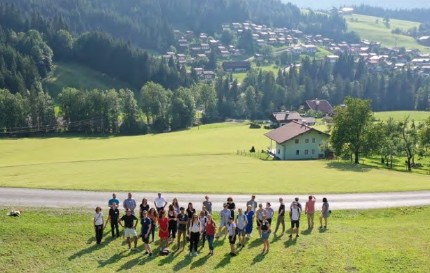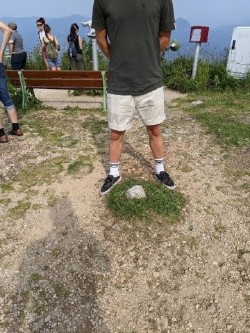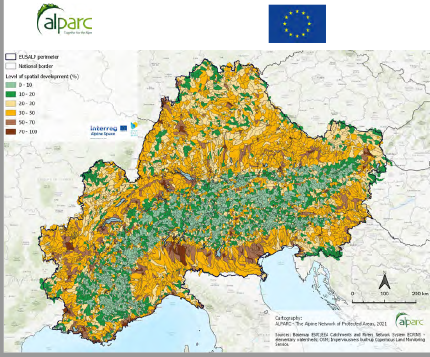CAPACITY BUILDING SEMINAR ON OPEN SPACE PLANNING FOR YOUNG PROFESSIONALS
Between 22nd and 25th of July, the Salzburg Institute for Regional Planning and Housing – SIR hosted a seminar to strengthen the skills of young spatial planners in the field of open space planning as part of the OpenSpaceAlps project, which is supported by the Interreg Alpine Space Programme. The seminar was also attended by a representative of HealingPlaces project partner Razvojni center Novo mesto which is a regional development agency in Jugovzhodna Slovenija.
The seminar was hosted by project partners from the Salzburg Institute for Regional Planning and Housing and the University of Würzburg, Institute for geography and geology. In addition, speakers were present also from Eurac Research Center – Institute for Regional Development, ALPARC – The alpine network of protected areas, Austrian region Vorarlberg and the Vienna University of Technology.
In addition to the lectures, two workshops were held. Main purposes of those were to identify planning tools for the protection and management of open space functions, and the development of open space planning strategies in three selected cases in the Alps. Among the results, it was perceived that the younger generations are thinking primarily about a green, sustainable and fair future. The development of methodologies will also make an important contribution to the results of the project HealingPlaces, in which Razvojni center Novo mesto participates as a coordinator for the preparation of a regional pilot action for sustainable management of spa areas. The results will also contribute to improvement of spatial planning practices.
As part of the seminar, two excursions were organized in the cross-border area of Salzburg, namely to the Austrian service and tourist region of Tennengau, and the German district of Berchtesgadener Land with near proximity of a national park. There, we learned about management practices and structures that require cross-border cooperation for a harmonised development of the entire area along the Salzach river. At both locations we were welcomed by representatives of local institutions, who presented good practices and challenges they face in the management and development of this cross-border area.

Group photo of participants at Annaberg im Lammertal, Austria (photo: Arthur Schindelegger)

Border between Germany and Austria along the Rossfeld panoramic road in Berchtesgaden (photo: Vane Urh)
- Awareness of ecological functions of natural and semi-natural areas, including ensuring their continuity (infrastructure that disconnects them, endangers their services; ecosystem approach).
- Continuous communication between spatial planning actors and sectors.
- Comprehensive understanding of the natural and socio-economic system of the selected area, including its cross-border functions.
- Awareness about increased risk of natural and other disasters (climate change).
- Professional bases/expert grounds for preparation and decision about strategic goals.

Level of spatial development per surface water body (source: Alparc 2021)
You can access further materials at the links below:
- Understanding the concept of open spaces and their functions
- Mapping of selected open spaces
- Map with thematic layers to support the implementation of the capacity building seminar
Additional material from the seminar and its results are available at the link HERE
